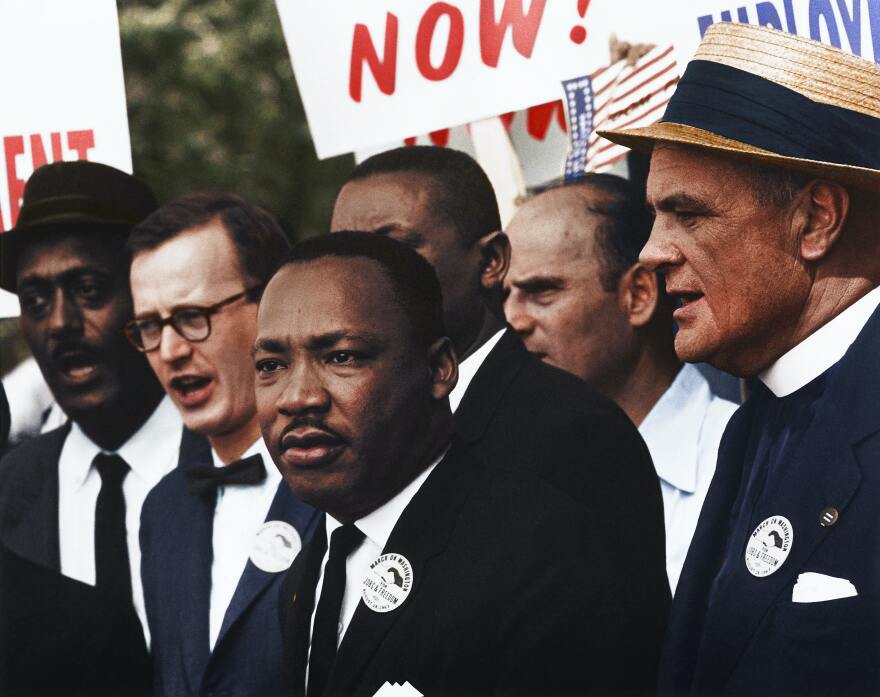During the month of February, schools often emphasize Black history. But some Kansas City students say the story of African Americans' achievements, struggles and joy isn't being adequately taught and doesn't tell it through the eyes of lived experiences.
David Brox is a sophomore in the Olathe School District. The way he sees it, "the way in which it is being changed being taught to fit other people's comfort zones" is contributing to the number of people who remain uneducated about Black history.
When it comes to his education in the Olathe district, Brox's evaluation is, "I've received very minimal education about Black issues further than Rosa Parks sitting on the back of a bus."
In January, Brox along with other Kansas City-area students penned their frustration with the cherry-picked life of Dr. Martin Luther King Jr. The students expressed concerns that crucial details of King's life and goals are excluded in schools' curricula.
"When you look at the way we teach King... we freeze him... within the 'I Have a Dream Speech,'" said LaGarrett King, director and associate professor at the Center for K-12 Black History and Racial Literacy Education at Buffalo University.
Brox and Professor King point out that schools don't teach MLK's view on economics, the Vietnam War or his letter's from the Birmingham jail.
"King was more radical than we know of today," the professor said.
Current curriculum is often limited to slavery, the Civil War/reconstruction and civil rights, according to King.
"When we focus on those limited three functions, what we're saying is Black History is only limited to oppression and some form of liberation," he said.
History should be taught "through" Black experiences, King explained, pointing to the example of the landmark school integration case Brown v. Board of Education.
King argues that American's learn "about" the case as being great for integrating schools, but not "through" the experience of Black people. It fails to teach what the Black community lived through at that time. Many liked their school, King said, and with integration some Black educators lost their jobs.
The goal of Brown v. BOE "was equity in school funding," and freedom of choice, according to King.
Ideal coursework for Black History would have eight principles, King said, and it would not begin at enslavement.
Misconceptions about critical race theory and conversations about diversity, equity and inclusion are tense across the nation, prompting a rash of legislative proposals, a concern for Brox.
He observed,"I feel like with each new law being pushed that slowly restricts conversations. I feel like we're putting ourselves two steps back."
- David Brox, sophomore, Olathe School District
- LaGarrett King, director, associate professor, social studies education director, Center for K-12 Black History and Racial Literacy Education at Buffalo University






